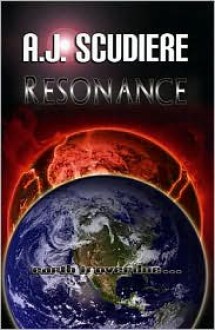While most living things don't notice earth's magnetic field, some are highly dependent on it, like homing pigeons and bees. But a magnetic alteration wouldn't just affect them; amphibians and insects are very susceptible to environmental changes. And there's no telling what it would do to the...
show more
While most living things don't notice earth's magnetic field, some are highly dependent on it, like homing pigeons and bees. But a magnetic alteration wouldn't just affect them; amphibians and insects are very susceptible to environmental changes. And there's no telling what it would do to the rest of us, since we don't know how we use our own internal magnetics, only that we have them. Approximately 200 million years ago map north was magnetic south. But ten million years later, the poles traded. They've traded again approximately every sixty million years, the last of which was sixty-five million years ago The current geological theory is that the poles begin a slow drift but that 'hotspots'—small pockets of reversed polarity—actually make the shift first. Once these reversals reach an unknown critical mass, the poles 'snap,' instantaneously trading places. Dr. David Carter the First was one of the first geologists to propose this theory, and it's his estranged son, Dr. David Carter the Second, who has just dug up some evidence that 'hotspots' do exist, and that they coincide far too closely with the dinosaur extinction. Dr. Becky Sorenson has a cache of mutated frogs in her backyard. Hers have four back legs and, aside from the fact that they keep staring at her, are otherwise normal. Only later does she realize that they all face the site where they were found, and that the only thing abnormal about the area is that her compass needle points south. Drs. Jordan Abellard and Jillian Brookwood are spending their days at the Center for Disease Control and Prevention writing reports on other physicians' field research. Jordan is convincedthat he can keep printing the same three reports: salmonella, botulism, and E. coli. But there's a cluster of patients in Florida who die from something new. Then another in Nevada, and another . . .
show less

